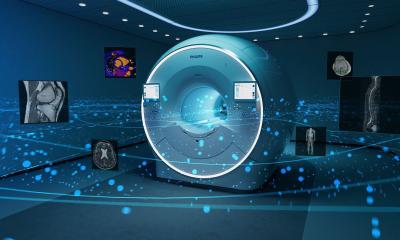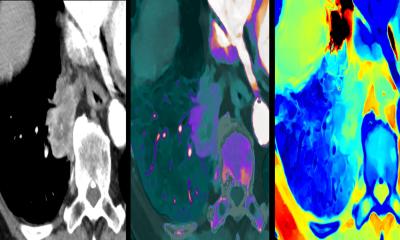
Image source: Philips
News • AI-driven diagnostics
Philips and Cortechs.ai expand neuroimaging partnership
Health technology company Royal Philips announced an extended partnership with Cortechs.ai, a company specializing in quantitative neuroimaging solutions.
The collaboration combines Philips' MR technologies with Cortechs.ai's quantitative neuro imaging post-processing software, to integrate AI-enabled neuroimaging analytics into Philips' MR systems.
Up to 25% of all MR procedures are brain scans1, with radiology departments facing increasing demand amid staff shortages. The number of patients with neurological conditions such as Alzheimer's disease, multiple sclerosis (MS), and brain tumors continues to rise globally. Current MR interpretation of neurodegenerative diseases or neuro-oncology cases relies heavily on visual assessment, which can introduce variability and requires significant expertise and time.
This integration brings precision, reproducibility, and efficiency to neurological MR, helping clinicians make faster, more confident decisions for patients living with complex brain conditions
Ioannis Panagiotelis
The partnership aims to deliver more standardized and data-driven imaging. By integrating quantitative analysis tools such as brain volumetrics, lesion quantification, and tumor tracking into the Philips MR imaging workflow, clinicians receive objective, numerical data alongside images.
The integration of Cortechs.ai's NeuroQuant® solutions for Alzheimer's, MS and brain tumors within Philips' Smart Reading environment – a cloud-based AI platform that combines imaging, reading, and reporting on MR systems – is designed to enable precision neuroimaging. With this integration, clinicians can automatically receive AI-generated quantitative reports within their standard MR workflow on the MR system or PACS. The automated process provides quality-checked data and standardized outputs.
"By extending our partnership with Cortechs.ai, we are accelerating the transition to fully quantitative, AI-powered neuroimaging," said Ioannis Panagiotelis, PhD, Business Leader, MRI, Philips. "This integration brings precision, reproducibility, and efficiency to neurological MR, helping clinicians make faster, more confident decisions for patients living with complex brain conditions."
By automatically generating quantitative reports within existing workflows, the system is intended to help radiologists save time and improve consistency. Objective numerical biomarkers are designed to enhance diagnostic accuracy and enable reproducible assessments across time and sites. Automated, quality-controlled workflows aim to reduce manual post-processing requirements.
"Cortechs.ai's mission has always been to empower clinicians with actionable, quantitative insights," said Kyle Frye, Chief Executive Officer, Cortechs.ai. "By combining our advanced neuro analytics with Philips' leading MR platform and AI infrastructure, we're making it easier to personalize brain care and track neurological changes with precision."
Cortechs.ai's NeuroQuant solutions are currently available on Philips Advanced Visualization Workspace. The integration of NeuroQuant solutions on Philips MR systems via Smart Reading is in development and not yet available in any jurisdiction.
Reference:
Source: Philips
20.11.2025
- AI (829)
- brain (603)
- company (213)
- cooperation (357)
- diagnostics (570)
- imaging (1641)
- MRI (833)
- neurology (614)





